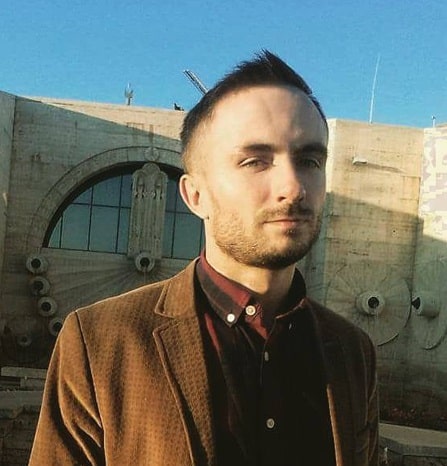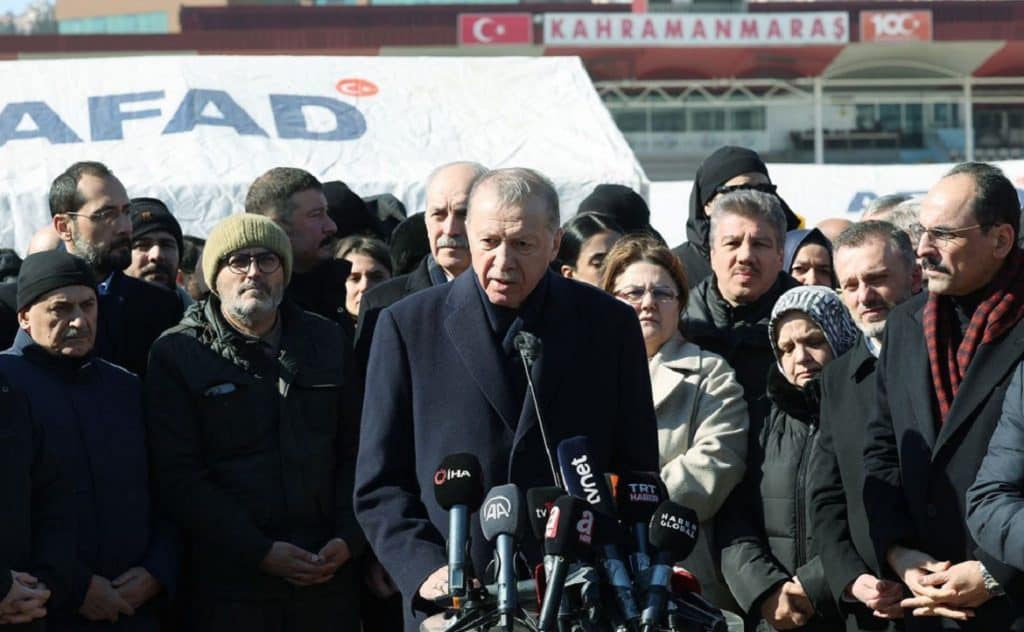By Anton Evstratov
The earthquake that struck Turkey could fundamentally affect the results of this year’s presidential and parliamentary elections, and hence Ankara’s policy in the Middle East and the South Caucasus.

The earthquake in Kahramanmaras s, which devastated not only the southern regions of Turkey, but also the neighboring territories of Syria, is, according to the latest data, the largest and most powerful natural disaster of its kind in the last 2 thousand years. The country has lost about 50 thousand people killed, not counting the tens of thousands injured and thousands missing. The material damage from the tragedy was also enormous – the disaster directly affected 13.5 million Turkish citizens and not less than 5 million more – indirectly. More than a million people became refugees and it is not known whether they will return to their places of residence and work or not.
There are different estimates of the monetary value of the damage caused to Turkey. According to the averaged data, the earthquake cost Ankara 80 billion dollars and will reduce the country’s GDP by 1-2% this year.
It is obvious that the Turkish society will seek and is already seeking those to blame for the tragedy, bearing in mind that such extensive damage in the zone of permanent seismic activity and related standards of construction could have been avoided and the rescue operation could have been better. Although in the first days of the earthquake response the Turks demonstrated genuine national unity and put aside political differences and other conflicts, the public is now beginning to ask the authorities more and more uncomfortable questions.
The fact is that Erdoğan has led the country as president and before that as prime minister for more than 20 years and it is his name and activities that are associated with widespread destruction and violations during the construction of buildings in the affected regions. Moreover, there is information about the activities of a real construction mafia coordinated by the son and son-in-law of the current Turkish president who got rich from low-quality construction. The amount of construction activity in the country-especially in the country’s major cities, in The costs are unprecedented in recent years, and could amount to billions of dollars in corrupt earnings.
As a result, all the buildings destroyed by the earthquake, built after 2000 (when the law on the seismic stability of buildings was adopted) and especially those built after 2002 (when the Erdoğan-led Justice and Development Party took power) directly cast a shadow on the current authorities and the President of the Republic personally.
And even despite the fact that the share of such buildings is no more than 2% of the total housing stock that was destroyed (the earthquake affected mostly rural and suburban areas, where construction was carried out on a much smaller scale than in big cities) and the fact that local municipalities, not the center, are often responsible for construction in the provinces, the opposition is already actively playing the card of corruption and incompetence of the authorities.
This discourse is especially relevant in light of the presidential parliamentary elections scheduled for June, where several opposition forces (the so-called Alliance of the Six) led by the Kemalists and Kemal Kalicdaroglu himself will become Erdoğan’s main rivals. If previously the latter looked quite a weak player in comparison to the incumbent president, now his chances of winning both the executive and legislative branches of power are becoming much greater. Recent exit polls show a more than 10% advantage of Kilicdaroglu over the incumbent leader.
The opposition also exploits rumors about Erdoğan’s possible declaration of a state of emergency and postponement of elections indefinitely, thus casting a shadow over its opponents.
Another important fact is that the earthquake struck the traditionally loyal AKP countryside, which could also complicate the party’s standing in the elections.
There has already been a precedent of regime change amid an earthquake in Turkey – in 1999 Bulent Edjevit’s government collapsed amid the consequences of the disaster, which paved the way for the Justice and Development Party’s triumph three years later.
It should be noted that Erdoğan is not sitting idly by, either – the media under his control are spreading theses about an extremely competent reaction to the situation, even despite the shock of the first few days. Moreover, a number of external players unexpectedly took the side of the incumbent president. If Turkey used to have extremely strained relations with the U.S. and the EU against the background of the Syrian and Ukrainian crisis, after the earthquake the Americans and Europeans sent billions of dollars to rebuild the destroyed areas. Even Ankara’s traditional adversaries, Greece and Armenia, did not stand aside, sending rescue teams to Turkey. Russia also sent its rescuers to help and is ready to further assist in the restoration of Turkish territories.
Moreover, we must not forget about the administrative resources in the hands of the president and his supporters. If we recall the situation with the last elections, there were more than once situations, such as power outages at problematic polling stations, which after restoration of power supply demonstrated the “necessary” figures.
It makes no sense now to talk about Erdogan’s defeat against the background of the earthquake, but it is obvious that the AKP will be much more difficult in the upcoming elections. If Kemalists win we should expect significant changes in the general foreign policy vectors of Turkey – in particular, the pro-Western opposition will move towards rapprochement with the U.S. and the EU to the detriment of relations with Moscow and will make the latter’s position extremely difficult. At the same time, Turkey’s operations in the South Caucasus are unlikely to change – Ilham Aliyev is ready for any format of interaction with Ankara. Theoretically, a slightly faster opening of the border with Armenia may take place, but Erdogan, too, is generally following this path. The fact is that at the moment Ilham Aliyev, amid the victory in the Karabakh war, behaves relatively independently with Turkey – including the expulsion of Turkish military advisors who led the Azerbaijani army during the days of military confrontation, and the Turkish leadership turns a blind eye to it. The Kemalists’ policy will definitely be tougher, but it will not affect Ankara’s position in the region as a whole, as there is no alternative to cooperation with Azerbaijan.
In case Kilicdaroglu triumphs, one can also assume a certain decrease in foreign policy activity, which is partly due to the Kemalists’ fixation on domestic problems, and partly due to Ankara’s economic and technical problems amid the earthquake and reconstruction of the affected regions, but at the beginning such changes will not be of a principal nature either.
Author: Anton Evstratov (Russian historian, journalist and journalist living in Armenia, lecturer at the Department of General History and Foreign Regional Studies at the Russian-Armenian University in Yerevan).
(The opinions expressed in this article are solely those of the author and do not necessarily reflect the views of World Geostrategic Insights).







